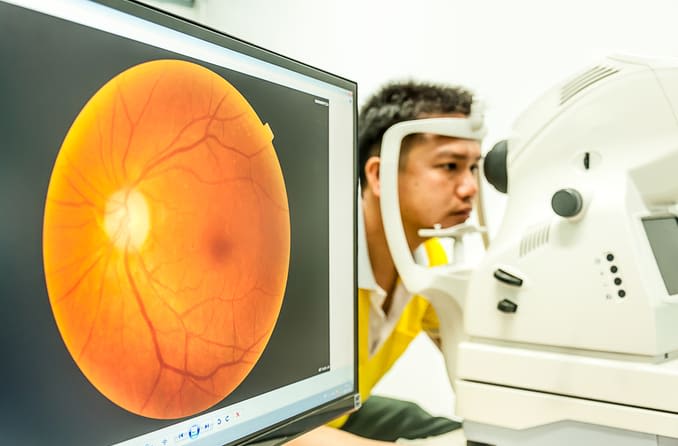Retina specialist: When should you see one?

A retina specialist (or retinal specialist) is an ophthalmologist who has undergone additional training to become an expert in the diagnosis, management and treatment of diseases of the retina of the eye.
In most cases, a retina specialist does not perform routine eye exams or prescribe eyeglasses or contact lenses.
When should you see a retina specialist?
In most cases, you will see a retina specialist only if you’re referred to one after a comprehensive eye exam by a regular eye doctor (optometrist or ophthalmologist).
Reasons for a referral to a retinal specialist include:
Your eye doctor has detected something unusual in your retina and wants an expert second opinion about the condition or its management and treatment.
Your eye doctor believes you have a retinal condition that is best managed and treated by a retina specialist.
Your eye doctor believes you have a medical eye emergency (such as a detached retina) that needs immediate surgery by a retina specialist.
SEE RELATED: Fundus
Who should see a retina specialist?
Most people won’t need to see a retinal specialist in their lifetime.
However, reasons someone might need referral to retina specialist include:
Risk of a retina or vitreous condition, due to genetics or other risk factors
For a special surgical procedure, such as a vitrectomy or repair of a detached retina
To evaluate a retinal hole or tear
For treatment of diabetic retinopathy
For ongoing management of a chronic disease of the retina, such as age-related macular degeneration
For evaluation and treatment of certain eye cancers
SEE RELATED: Detached retina symptoms and warning signs
Conditions a retina specialist treats
A retinal specialist can diagnose, manage and treat almost any condition or injury that affects the retina. This includes the macula, the part of the retina responsible for your central vision.
In addition to other disorders, a retina specialist can treat:
Retinal hole or tear: A small defect on the surface of the retina. Without treatment, it may lead to retinal detachment.
Retinal detachment: The separation of retinal tissue from the back of the eye, sometimes as the result of injury. Prompt medical treatment is needed to avoid vision loss.
Other eye-related injury or trauma.
Age-related macular degeneration (AMD): A slow deterioration of the macula that causes gradual vision loss in the center of your vision. Sometimes AMD is caused by abnormal blood vessels that grow and leak into the retina.
Diabetic retinopathy: A potential complication of diabetes that occurs in stages. The early stages require monitoring — making annual comprehensive eye exams especially important — while later stages usually require treatment.
Other forms of retinopathy: Including hypertensive retinopathy (a complication of high blood pressure), solar retinopathy (retinal damage from the sun) and retinopathy of prematurity (a complication of premature birth).
Certain cancers of the eye.
Endophthalmitis: A rare but serious bacterial or fungal infection that can occur inside the eye after surgery or trauma, or when an infection spreads from another part of the body into the eye.
Eye floaters: Tiny specks or squiggly lines that “float” across your field of vision. Floaters are very common and usually aren’t cause for concern, but surgery to reduce floaters may be considered in severe cases.
Retina specialist: Emergency care
If you experience eye trauma or a vision-related emergency, do not hesitate to contact an eye doctor as soon as possible. You may then be referred to a retinal specialist.
In traumatic instances, such as eye injuries involving the retina, a retina specialist can offer a specialized emergency treatment plan. This may involve surgical treatment, among other special care.
READ NEXT: Retinal detachment surgery
Page published on Tuesday, October 27, 2020




